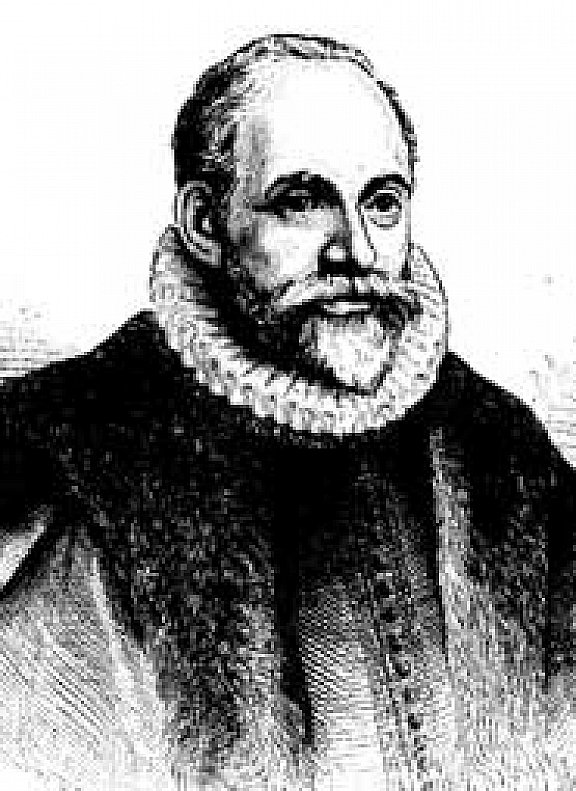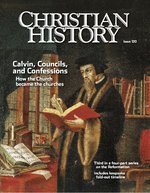Questioning Calvin, Arminius Split Dutch Protestants

Theologian Arminius modified Calvinism.
WHEN THE CURATORS OF LEYDEN UNIVERSITY (in the town of the same name in the Netherlands) appointed Jacob Arminius as professor of theology on this day, 8 May 1603, they did not realize what a controversy they were creating. It initially seemed they had made a great choice. Arminius was not only well-educated, but a popular preacher in Amsterdam. In fact, the real difficulty was getting Amsterdam to let him go. He had a lifelong contract with a church there. Furthermore, he said that he found too much theological study dried up his personal spiritual life.
Arminius considered himself a Calvinist, but he was not comfortable with the strict Calvinist view of predestination. Strict Calvinists believed Christ died only for the elect. Arminius held that Christ died for all, although not all would be saved. Not wanting to stir up trouble, when he had to lecture on the topic, he presented a wide range of Scripture with minimal comment. However, by presenting Scriptures that declared that Christ died for all men, he challenged the strict position. He also argued that people have genuine free will and that God’s grace is in most cases resistible, against the strict Calvinist claim of irresistible grace.
Almost at once, the other theologian on the Leyden faculty, Franciscus Gomarus, challenged Arminius. He accused Arminius of Pelagianism—a view that denies we inherit sin from Adam and believes that man can save himself. While he admitted he had never read Arminius’s work, he nonetheless pointed out (correctly) that Arminius was varying from strict Calvinist orthodoxy. For his part, Arminius denied he was Pelagian and insisted that he had examined each of his points carefully to make sure none nullified the doctrine of salvation by faith. If he did not accept Calvin’s exact view of predestination, he nevertheless accepted predestination, believing that all was by God’s choice: God predestined those he foresaw would obey him in faith.
A key point of contention between Arminius’s position and Calvin’s was that Calvin taught Romans 7 was the lament of a Christian. Arminius said it was the account of a person struggling without saving grace. After Arminius explained his views, Gomarus agreed they were defensible from Scripture, even if not the interpretation he preferred. Arminius showed that his position had been held by a score of eminent early theologians. Everyone was temporarily mollified.
Nonetheless, murmurs over his theological views dogged Arminius the rest of his life and some Calvinists were unhappy that a number of preachers in the Netherlands embraced the Arminian system. Conflict was inevitable, especially since the Arminians also tended to side with the “free-state” party against the Dutch ruler, Prince Maurice, who wanted a stronger central government.
After Arminius’s death, the Calvinist majority convened the Synod of Dort, condemning Arminian views. Calvinists expelled Arminian pastors, killed some, exiled many, and temporarily banned any from even preaching in private. Soon they eased these restrictions, but it was not until 1795 that the Dutch recognized Arminianism as a legitimate interpretation of scripture. Many notable later Protestants have held Arminian views, including the Wesleys.
—Dan Graves
----- ----- -----
Calvin, Councils, and Confessions examines the legacy of Calvin from which Arminius took his departure. "Defender of God’s justice," in Christian History # 122, The Catholic Reformation also has relevant material.






